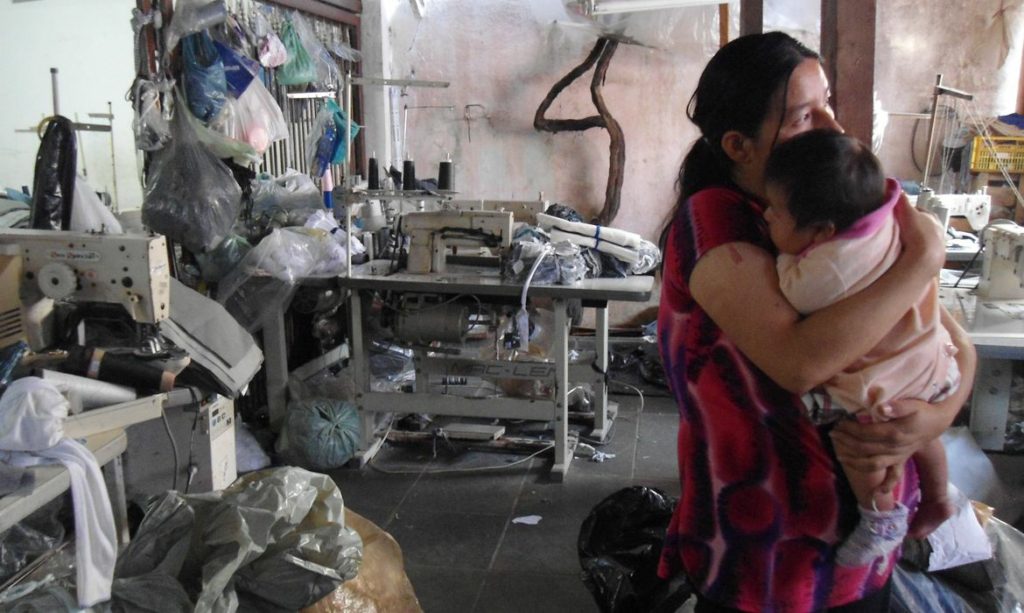WORK JUSTICE
Disclosure: MPT
The Superior Labor Court (TST) decided that cases involving slave labor are imprescriptible in the labor sphere. When accepting the appeal from the Public Ministry of Labor (MPT), the ministers recognized that subjecting workers to conditions similar to slavery is a crime against humanity and, therefore, does not fall within the general statute of limitations. The trial took place on 10/18 and the ruling was published this Friday (10/27).
In the action, the court reviewed the understanding of the Regional Labor Court of the 2nd Region (TRT 2) on a public civil action filed by the MPT-SP that demanded compensation for damages in favor of a domestic worker rescued under similar conditions. The case took place in 2020, when the Public Ministry and the Civil Police of São Paulo rescued, in the Alto Pinheiros neighborhood, a worker subjected to a series of rapes by the family that had employed her since 1998. According to the MPT, the worker was victim of aggression, mistreatment, embarrassment, psychological torture, property violence and labor exploitation.
When evaluating the action, TRT 2 understood that the case would be subject to the five-year statute of limitations, which establishes compensation for labor damages relating to up to the last 5 years.
However, for the rapporteur of the action at the TST, minister Liana Chaib, “applying labor statutes of limitations to an individual subjected to work in conditions analogous to slavery would be like punishing him doubly, or even revictimizing him, condoning a criminal and acquitting the person who violated an absolute fundamental right.”
Furthermore, the minister stated that the incidence of prescription, added to the delay in resolving actions involving slave labor, leads to impunity and cited famous cases, such as that of Fazenda Brasil Verde and the Boneti couple, which gained repercussion after the podcast “A Woman from the Abandoned House.” “Records of impunity like this are regrettable, which make clear the need for rapid and forceful change in the Brazilian legal system, whether through more forceful legislative action or through jurisprudence established in the Courts of the Judiciary,” he stated.
For the judge, it is not possible to apply the prescription to slave labor because there is no correlation between a regular job registered in the work card and a job with deprivation of freedom, subject to violence and without the guarantees provided for in labor legislation. Minister Liana Chaib highlighted that “because we are faced with a crime against humanity and an absurd violation of man's fundamental human rights, the submission of a worker to a condition analogous to slavery, an odious practice of such gravity and perversity that it allows exception the general rule on labor prescription”.
“How can we explain to workers who have been subjected, sometimes for decades, to conditions analogous to slavery, that their most basic rights have been consumed by prescription? Before ending the implementation of a serious violation of human rights, applying the prescription, in such circumstances, means rewarding the transgressor with the fundamental guarantees of the human being as a worker”, she added.
The TST applied the understanding established in Summary No. 647 of the Superior Court of Justice (STJ), which recognized the imprescriptibility of compensation actions for moral and material damages arising from acts of political persecution with violation of fundamental rights during the military dictatorship.
In a note, the National Coordination for the Eradication of Combating Slave Labor and Combating Human Trafficking (Conaete) of the MPT highlighted that the decision is an important step forward in the fight against slave labor in the country because it recognizes the imprescriptibility of the right to request judicial compensation for individual and collective damages resulting from slave labor. “This means that the statute of limitations does not apply to cases of slave labor in Brazil. At any time, the victim of slave labor or legitimate bodies, including the MPT, can file lawsuits asking for compensation for the damages”, explained Aragão.
The decision determined that employers pay compensation for collective moral damages set at R$200,000 and R$100,000 for the conviction.
The Judgment is available under number TST-RRAg-1000612-76.2020.5.02.0053
.

 Mr. Alessandro Jacob speaking about Brazilian Law on "International Bar Association" conference
Mr. Alessandro Jacob speaking about Brazilian Law on "International Bar Association" conference